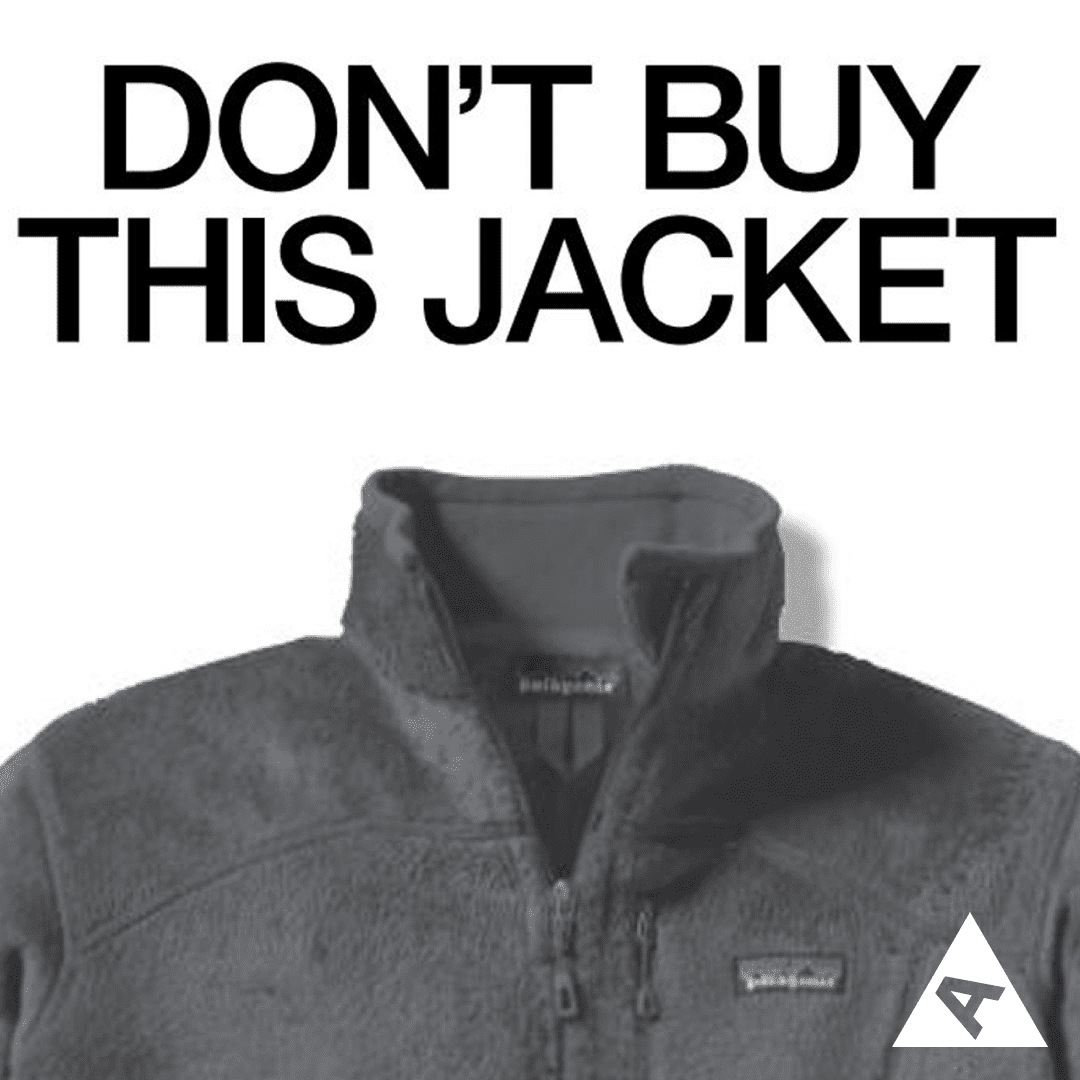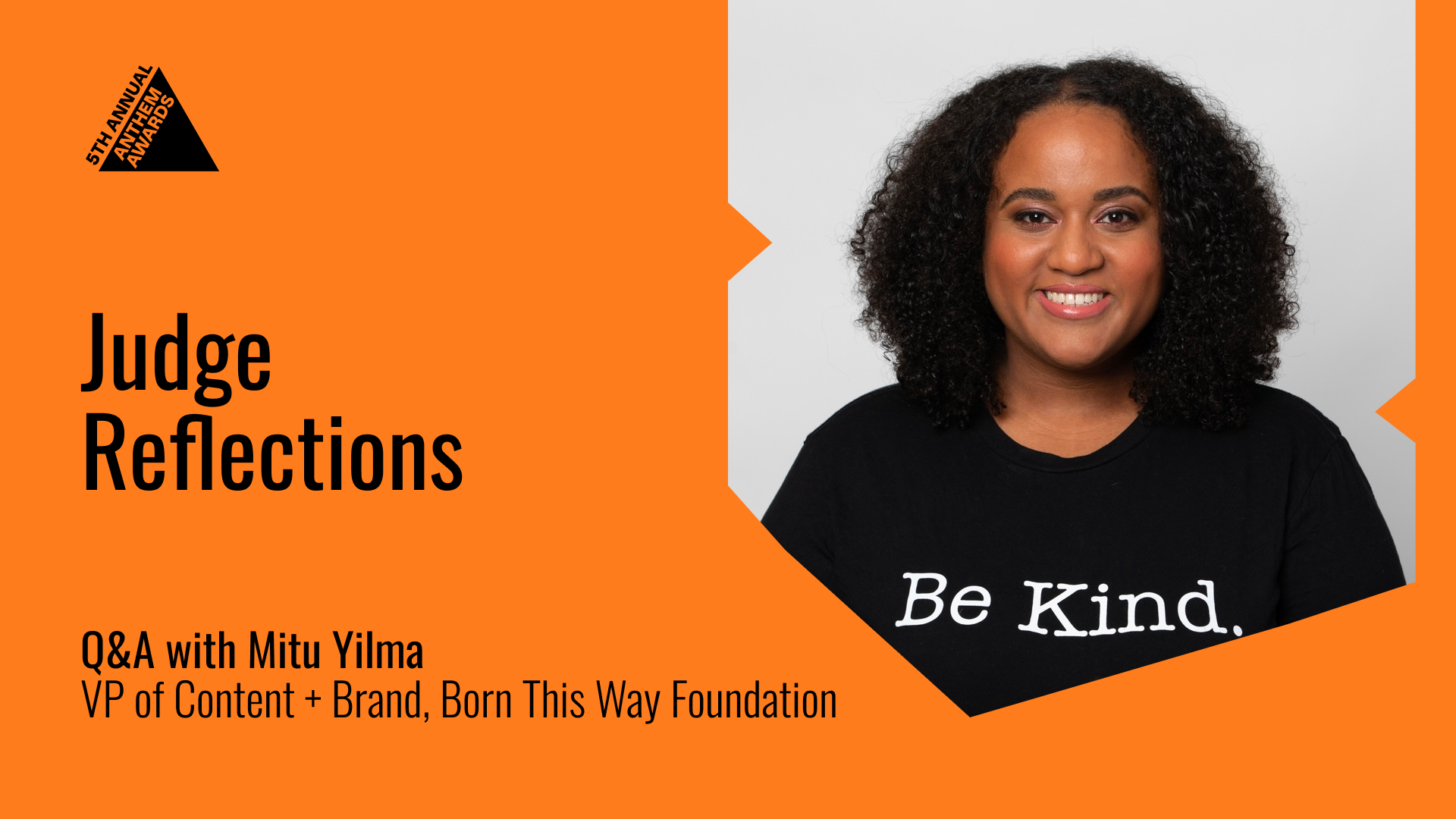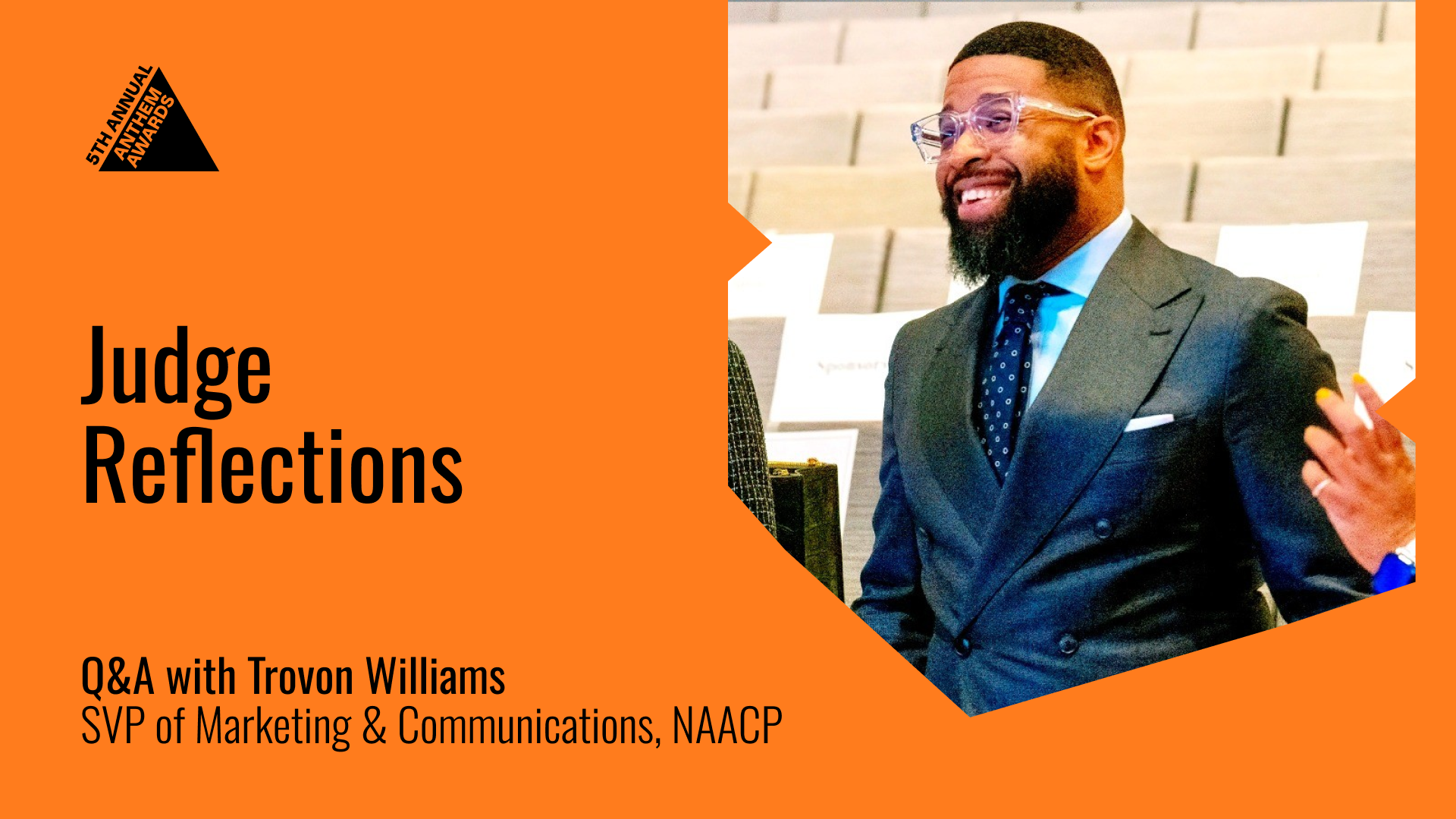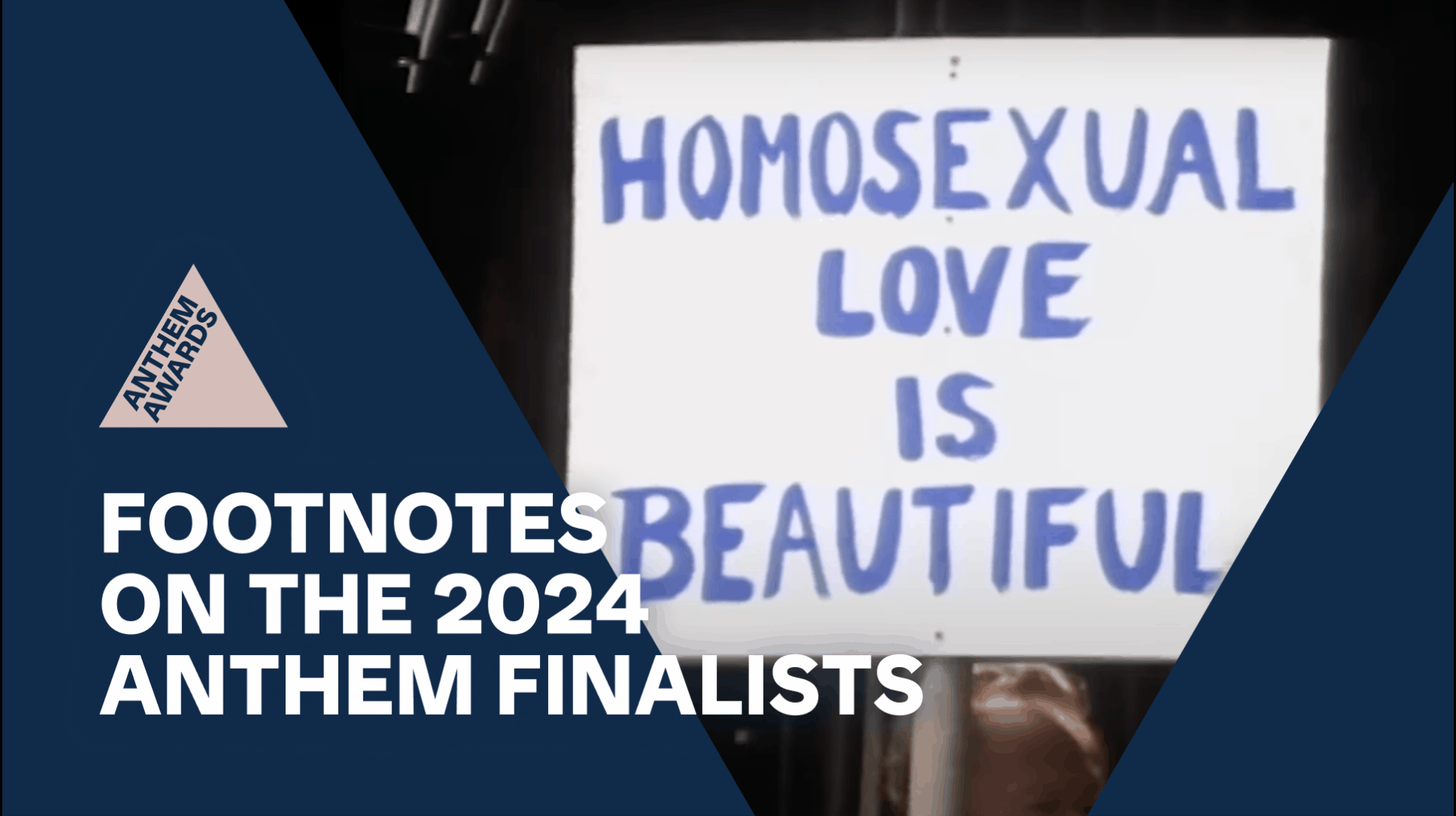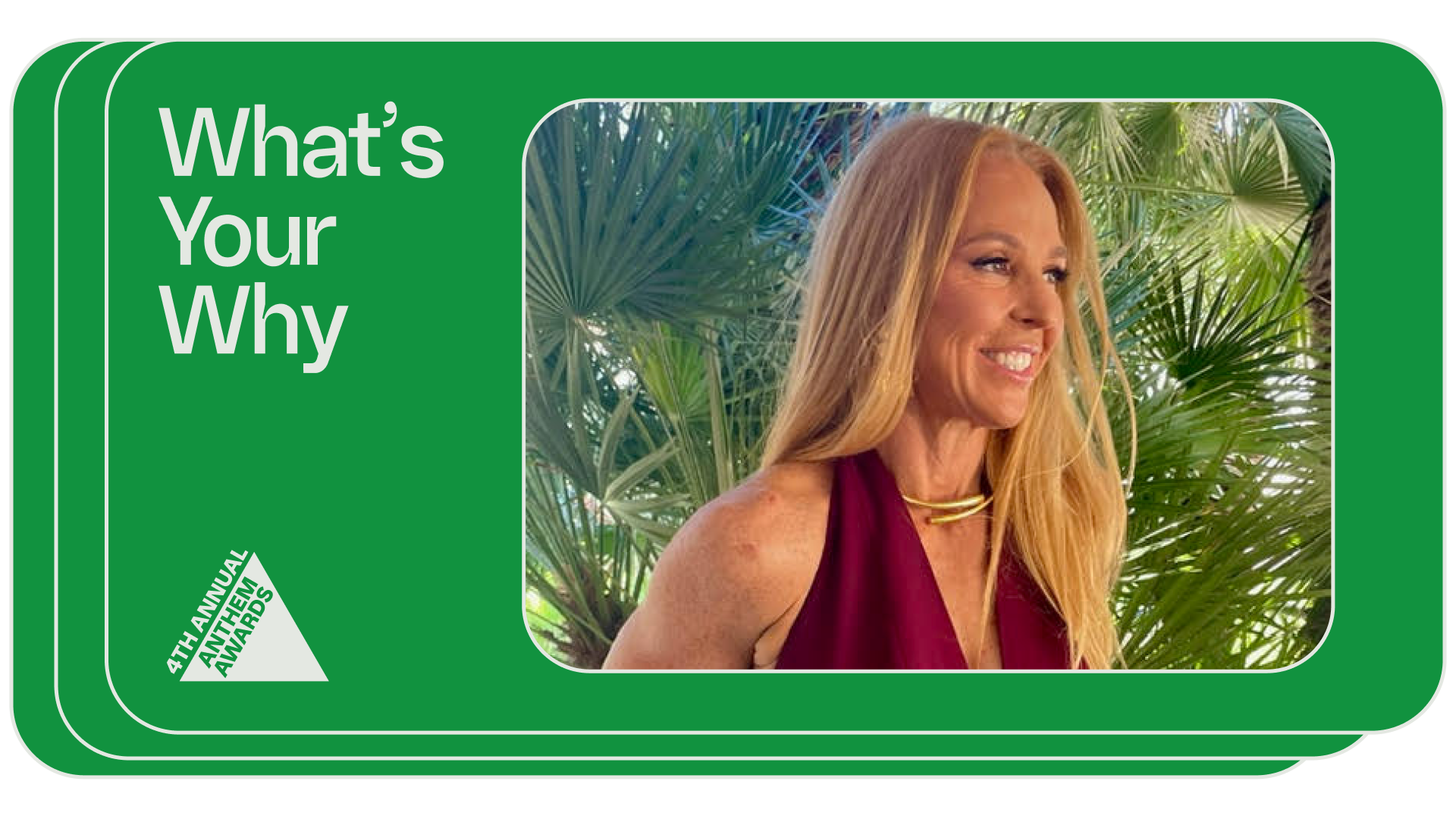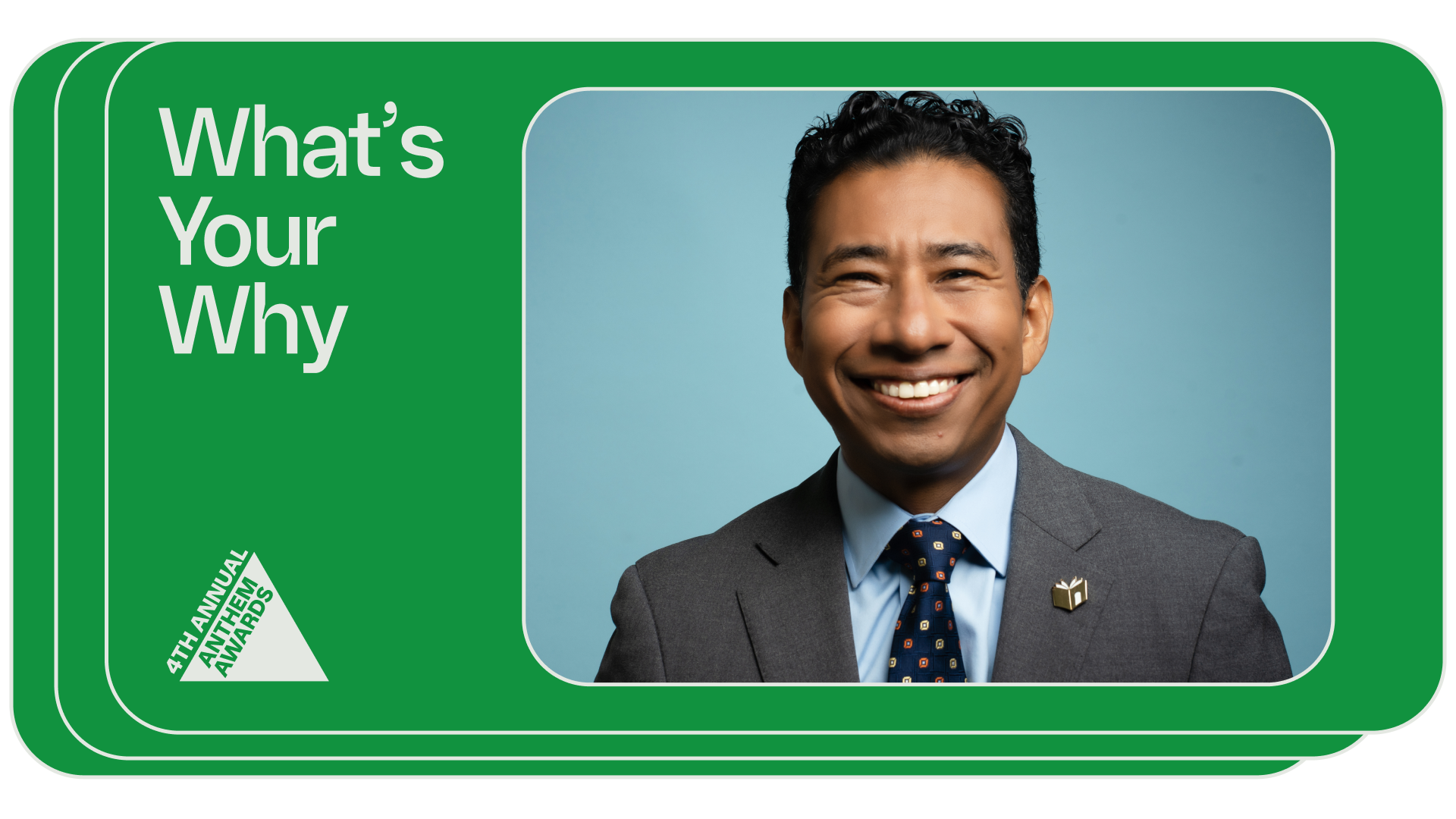Meet Emily Horton, CEO and Founder of More Diverse Voices
Here’s what industry-renowned social impact expert, Emily Horton, is looking for in the work this season of The Anthem Awards.
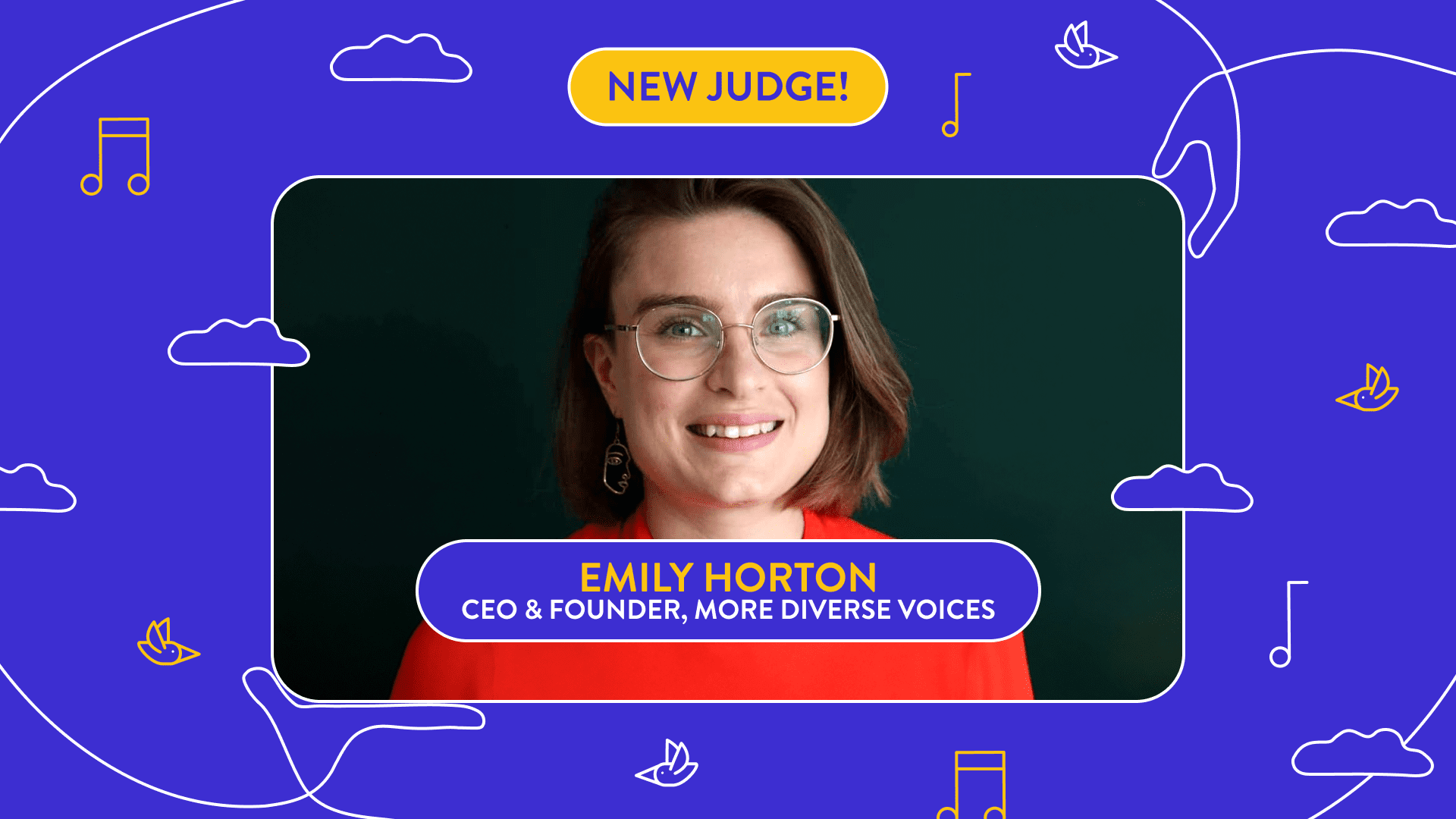
We’re thrilled to welcome Emily Horton, one of our newest jurors to join the Anthem Judging Academy. From reimagining the ways brands connect with their audience to how they center purpose in their messaging, Horton is a leader in transforming organizations’ inclusivity. Through her organization More Diverse Voices, she drives companies to envision their media campaigns and communications through a human-centric lens. We spoke with her about the mission-driven work that inspires her, what it takes for an impact campaign to ignite change and more.
For those who are unfamiliar, please tell us about yourself and the work that you do.
👋🏻 I’m Emily – the founder of More Diverse Voices. I help create and deliver anti-oppressive and inclusive communication strategies that build trust, educate and empower.
How? By offering:
🎓 Educational workshops
🤝 Co-designed communication strategies
🖍 Inclusive communication audits
🙌 Intentional and empowering content
📣 Media campaigns that increase representation and raise awareness
Over the past 8 years, I have helped charities, think tanks, policymakers, investors and fast-growth tech companies find their voice. During my time as a financial journalist at Dow Jones, I focused my reporting efforts on diversity and inclusion.
I founded More Diverse Voices while taking part in the post-graduate social innovation program Year Here and hold a degree in Archaeology and Anthropology from Cambridge University. I was listed as one of Pioneers Post x NatWest Top 100 Women in Social Enterprise 2023. As a neurologically diverse and queer writer, I believe that justice, equality, diversity and inclusion are crucial to creating a society where everyone can flourish.
What expertise are you bringing as a judge to the 3rd Annual Anthem Awards?
Experience in PR, media, communication, diversity, equality, inclusion, and justice.
What does it take for a social impact campaign to create real-world change?
Authenticity, community and connection over social media metrics and reach. Numbers are useful but have their limitations. A campaign has to demonstrate a true understanding of the problem, and a true understanding of the community and provide tangible/ actionable ways to create change. This type of understanding can only be achieved through co-design and co-creation – a process that listens to and learns from a community, and respects and acts upon their requests.
One of the best ways to create change is to demonstrate change or take a transparent “show, not tell” approach. It is not just about having a catchy headline and compelling imagery, the social impact has to be deeply embedded into a company’s culture and align with its policies and practices.
Companies also have to be willing to stand by their campaigns, particularly if it is advocating on behalf of a historically excluded community. For some products & services, this may result in a negative backlash or a dip in sales. But if these organizations want to build trust with a community they have to stand by them.
What within today’s advocacy space excites and moves you?
- Community building – both online and offline
- Self-care as a form of activism
- How to create intentional and inclusive spaces to have challenging conversations
- How to call people in, not call them out
Is there a recent campaign or grassroots effort that inspired you? What about that project made a lasting impression?
The book “White Women: Everything You Already Know About Your Own Racism and How to Do Better.” Written by anti-racism activists Regina Jackson and Saira Rao – “‘White Women’ is a call to action to those who are looking to take the next steps in dismantling white supremacy – your white supremacy.”
It was a slap in the face – in a good way. It both challenged me and inspired me. It helped me understand that the things harming/holding Black, Indigenous and Brown women back, are also toxic behaviors that are hurting me (as a white woman) too. Perfectionism, niceness, white supremacy, white feminism, racism, microaggressions, and toxic positivity (things that lots of white women have been conditioned to do) are all harmful.
It also helped me understand what I can do (as a white woman) to tackle white supremacy and racism in my own work and life. This is an essential read for a white woman working in anti-oppression, social impact and communication.
Other activists/changemakers that have inspired me:
- Tackling racism + deconstructing white supremacy – Philip Mix A Johanna David Mcqueen
- Empowering + fighting for the rights of the LGBTQIA+ community – Max Slack, Lily Zheng, Paff Evara, Aby Hawker
- Raising awareness of the realities of neurodiversity – Ellie Middleton Luke Manton Dan Harris
- Talking about mental health – George Bell
- Environmental activism – Ellen Miles
- Feminist fighting the patriarchy and creating awesome communities – Karla Morales-Lee Sonya Barlow
- Normalizing squiggly careers – Sarah Ellis Helen Tupper
This year, The Anthem Awards is putting a spotlight on how change is a chain reaction and is often led by intersections across causes. What impact areas are you hoping to see connect more this year?
- Trans rights, LGBTQ+ inclusive sex education in schools
- Reproductive rights – the reproductive rights of women/people who can get pregnant are under attack, yet again.
- Anti-racism work – particularly around educating white people to understand how they contribute to upholding white supremacy and how it is white people’s responsibility to educate themselves/ each other and do the work.
- Climate crisis – the negative impacts of the climate crisis on historically excluded groups and how access to nature should be viewed as a human right.
- Classism – many of the issues above are compounded/ made worse by classism and limited access to education, healthcare, jobs, housing, intergenerational wealth, etc.
What kind of work are you most excited to review in the new season?
I’m excited to review work that focuses on creating genuine community & connection, that demonstrates transparency, commitment and authenticity.
What are you looking for among this year’s cohort of impact work?
Authenticity, community and connection over social media metrics and reach.
Is there a project or initiative that you’re working on that you would like to spotlight?
Over the past two years, I’ve been working with companies to create inclusive communication campaigns to help them reach their audience and build their reputation. I’ve had a number of requests to turn what I do into a more accessible and affordable course, so I created the Conscious Campaigner Sprint.
This six-week cohort-based course provides practical hands-on support for changemakers looking to raise awareness of a product or service and campaign for justice, equity, diversity and inclusion.
The program is open to individuals and teams and is designed to give marketing teams the tools to create their own inclusive campaigns, over and over again.
By the end, participants should have the tools to:
- Build campaign confidence and make a difference with your marketing spend
- Create an inclusive communication that authentically reaches and supports new audiences
- Secure media coverage and tell the stories that matter
- Connect with like-minded changemakers who can act as a springboard for your creative campaign ideas
I’m also open to partnering with relevant organizations! So let me know if you’d like to chat.
There’s still time to put your work in front of renowned and industry-shaping social impact leaders—The Anthem Awards has extended the deadline to enter! To champion your advocacy on a global stage, submit your work to the 3rd Annual Anthem Awards by the Extended Deadline on Friday, October 13th!


